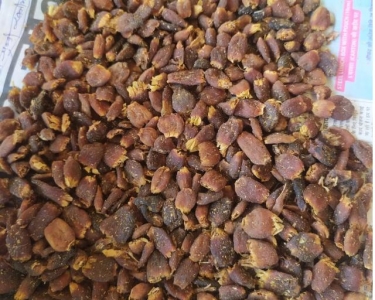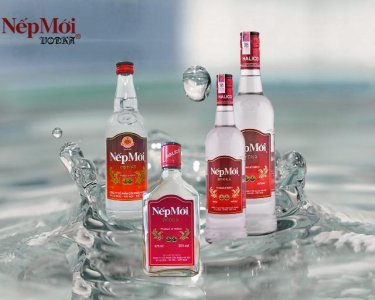Live animals
Couldn't find the product you want?
Fill out this form to request the product.
Products You May Like
Export from Martinique
Martinique is an insular region of France located in the Lesser Antilles in the eastern Caribbean Sea. One of the Windward Islands, it is directly north of Saint Lucia, southeast of Puerto Rico, northwest of Barbados, and south of Dominica. The island started to gain its name and place on the international market in 1946, as an integral part of French Republic.
The economy of Martinique is based on the trade of things that are worthless to exchange them for more valuable objects. Agriculture plays a very important part in the economy and brings the biggest part of the country's income. Most of the agriculture on the island can be found in the hot valleys and along the coastal strips, and large parts of these areas are dedicated to the cultivation of sugarcane and the production of rum, which is the island's greatest export. Bananas and pineapples, as well as other fruits, are also important exports for Martinique. In recent years, the export of bananas has been increasing, with shipments mainly bound for France. Other agricultural exports include avocados, vegetables and flowers. Currently, agriculture makes up about 6 percent of Martinique's gross domestic product.
The island is reach in natural resources. Due to the presence of hills and rocks, the island can export large quantities of construction materials and engineering, such as : building stones, cement products, ceramic materials, chemical and plastic items, etc.
The major export partners of Martinique are: France, Brazil, French Guinea, Germany and Guadeloupe.
Import to Martinique
Manufacturing is peripheral and in support of the agricultural base. Local markets are dominated by metropolitan France, and the prevalence of imported over locally made products contributes to the high cost of living.
The government focuses the attention on building up strong road, sea and air infrastructure in order to create new international trade connections. In such a way, Martinique imports machinery and mechanical appliances for construction needs. These are: industrial supplies, mining machinery, construction equipments for excavation and loading, construction equipments for compaction and grading, construction equipments for drilling and blasting, construction equipments for lifting and erecting, etc.
As the country is focused on agriculture and soil works, the government of Martinique imports different kinds of farm machinery, such as: power tiller, row cultivator, petrol and disc cultivator, bale wrappers, combined harvesters, feeders, fertilizer spreaders, ground care equipment, ATVs and trailers.
In addition to this, the country imports: petroleum products, foodstuffs, vehicles, clothing, and other consumer goods.
The major import origins are: France, Portugal, Germany, Spain, Brazil, French Guinea, Germany and Guadeloupe.
Check Out Export Portal: A Site That Lets You Export Live Animals
If you are looking to buy and export animals, then you came to the right place! Export Portal's Live Animals Department is an online marketplace for sellers and buyers of any livestock. We work to contribute to the live export industry, which brings many economic advantages and other benefits to countries that rely heavily on livestock imports. In fact, in just Australia alone, this industry contributes roughly $1.8 billion to the country's GDP each year. Moreover, it also ensures food security while helping people meet their protein needs as well.
Finding the Right Animal
We feature a wide range of pigs, cows, sheep, goats, horses, rabbits and hares, turkeys, bees, and fish for sale. An increasing number of American, Australian, German, South African, Argentinian, and Italian farmers and companies are advertising their livestock with Export Portal, portraying just how effective and helpful our site is.
To help customers make more informed purchasing decisions, our site lets users narrow down their searches by the age, breed, and sex of the animal. If you are feeling hesitant to shop on our site and want more detailed information, make sure to check out our seller ratings and reviews, which are written by our buyers and customers. We also collaborate with hundreds of trusted international shipping companies that arrange the transport of all kinds of animals and birds to any country in the world.
Online Shopping is More Simple with Export Portal
Export Portal is an ideal site for everyone who is an avid online shopper. Our convenient options make it easy to find and buy whatever you are looking for. Our seller network from all over the world has everything you need, and our customer support team will make sure you can find it. Our wide assortment of products will be sure to provide you with the best shopping experience. Make sure to check out our site and items today!
Customs requirements of Martinique
Martinique Customs Office in France
Website: http://www.douane.gouv.fr/
Email: customs@gov.je
Address: 50 Rue Martin Luther King
97200 Fort de France, Martinique
Phone: +(596) 60-0050
Fax: +(596) 73-1088
Tariffs
Most raw materials imported to Martinique from non-EU countries enter duty-free or at low rates, while most manufactured goods are subject to rates of between 5 and 17 percent. The tariff schedule is based on the Harmonized System. Besides customs duties, most processed products are subject to additional import charges based on the percentage of sugar, milk fat, milk protein and starch in the product.
Import duties are calculated on an ad valorem basis. This dutiable value is the "transaction value" plus freight, insurance, commissions, and all other charges and expenses incidental to the sale and delivery of the goods to the point of entry into EU customs territory. The invoice price will normally be accepted as the transaction value if the seller and the buyer are not related.
Under Article VII of the General Agreement on Tariffs and Trade (GATT), there are four additional methods for the determination of customs valuation in the event that the method described above is rejected by customs authorities. These methods are to be applied in the following order: (1) the transaction value of incidental goods; (2) the transaction value of similar goods; (3) the deduction method, i.e. the resale price, less such costs as customs duties, taxes and commissions; and (4) the computed value, utilizing costs of production, profit, and other expenses.
Required Documentation
Cargo and goods being imported into the country must be secured and fully concealed with documentation of commercial invoice, bill of lading, labeling and measurements. Most imports come via ports through the gulf and are apparent to customs upon arrival.
Every importer or exporter has to prepare the following documents in order to sell on both local and international markets:
- Commercial Invoice
All imports of goods and services must have their commercial invoice stamped and legalised by government from origin of export. Without this document companies will be fined and goods may be rejected from entry.
- Bill Of Lading
When exporting products to a non-governmental importer in Martinique it must include the bill of lading. When items are declared they are subject to different tax thresholds and must include:
a) marks of identification, name and address of consignee;
b) quantities, weights and values.
- Certificate of insurance
Certificates must include details about the overall program, project or contract that is being embarked on, information about your organization, total value of the project and other details may be requested and all sections of the form must be filled out and in order.
Labeling
The labels on the imported product has to contain the following information:
1. All the information about the product has to be printed on a label securely affixed to the package or printed on the package itself;
2. All the products with only one sttandard label are not allowed to pe placed on the market;
3. All products with false, misleading or deceprive representation are not allowed to be placed on the market;
4. The content on the label has to be clear, prominent, indelible, and readily legible by the consumer.
Packaged food must carry a statement identifying either:
1. the country where the food was made, produced or grown;
2. the country where the food was manufactured or packaged and that the food is a mix of ingredients imported into that country or a mix of local and imported ingredients.
Country of origin labeling applies to unpacked fresh and processed fruit, vegetables, nuts, spices, herbs, legumes, seeds, fish (including shellfish) and meat (pork, beef, sheep and chicken).
For example, the following unpacked foods are required to have country of origin labeling:
1. fresh and sun-dried tomatoes;
2. processed ham and bacon;
3. fresh and smoked fish fillets, and crumbed fish fillets;
4. fresh apples and dried apples;
5. chicken, pork, beef and lamb.
Sources:
https://hortintl.cals.ncsu.edu





